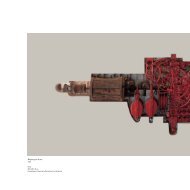Memoria 2002 - Fundación César Manrique
Memoria 2002 - Fundación César Manrique
Memoria 2002 - Fundación César Manrique
Create successful ePaper yourself
Turn your PDF publications into a flip-book with our unique Google optimized e-Paper software.
E N G L I S H V E R S I O N<br />
Encounter:<br />
Another world order<br />
grass-roots participation); José Vicente Barcia, Getafe Town<br />
Hall Integration Co-ordinator (Shared management: a<br />
proposal to delve deeper into democracy. Territorial<br />
management perspectives and experience); and Eloísa Acosta,<br />
participation expert with the Cordoba Town Hall<br />
(Participatory budgets. Cordoba, a case study).<br />
The course aimed to conduct an in-depth review of existing<br />
democracies, their limits, shortcomings and potential for<br />
grass-roots regeneration.<br />
The course stressed the concept of citizenship and social<br />
participation in historic development. The definition of<br />
citizenship has been monopolised by the State, reducing<br />
citizens to mere subjects of representative democracy.<br />
Nonetheless, new citizen demands and aspirations have placed<br />
the citizen at the centre stage of democracy.<br />
Some of the more prominent practical experiences in<br />
participatory democracy dealt with in the course were: the<br />
regeneration of the Trinitat Nova quarter in Barcelona<br />
through co-operation between neighbourhood associations<br />
and social agents; integration projects in the town of Getafe;<br />
and the application of participatory budgets for certain areas<br />
of municipal management in Cordoba.<br />
From 13 to 15 November, the course entitled Another world<br />
order was held at FCM headquarters under the leadership of<br />
Francisco Jarauta, chair of philosophy at the University of<br />
Murcia.<br />
The following lecturers took part in the course: René Passet,<br />
emeritus professor of economics at the University of Paris<br />
(Logical consequences of neo-liberal globalisation); Francisco<br />
Jarauta (Cosmopolitanism vs Empire), Ignacio Ramonet,<br />
Editor-in-Chief of Le Monde Diplomatique (Militarisation of<br />
globalisation); Mariano Aguirre, director of the Centre of<br />
Research for Peace, Madrid (What comes after the collapse of<br />
States); and Javier de Lucas, chair of philosophy of law with<br />
the University of Valencia (Immigration: the mask of the<br />
globalisation process).<br />
The course addressed the transformations taking place in our<br />
age from different angles, in terms of both systems of<br />
representation and the way we think about the world.<br />
In his lecture, course director Francisco Jarauta analysed the<br />
growing predominance of economic logic at the expense of<br />
126


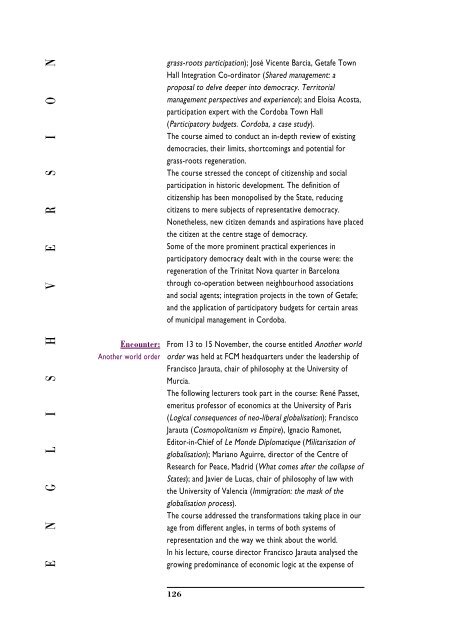
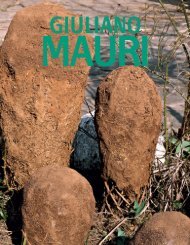
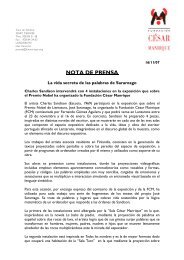
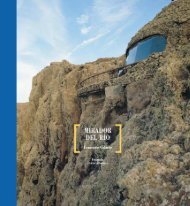
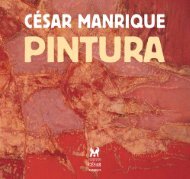
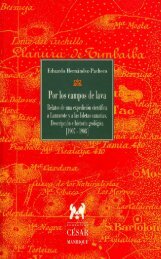
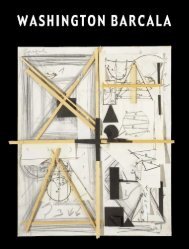
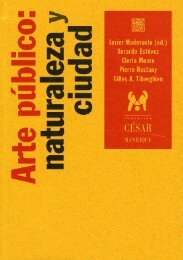
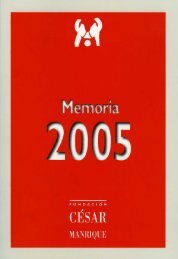
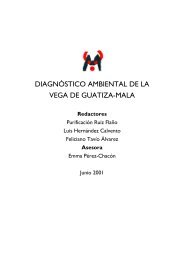
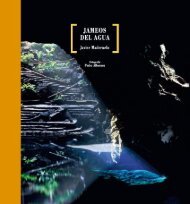
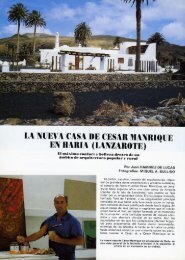

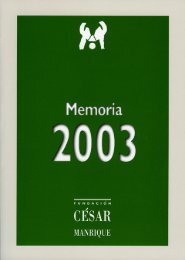
![Becas y premios de la Fundación César Manrique [1997-2006]](https://img.yumpu.com/20766851/1/184x260/becas-y-premios-de-la-fundacion-cesar-manrique-1997-2006.jpg?quality=85)
